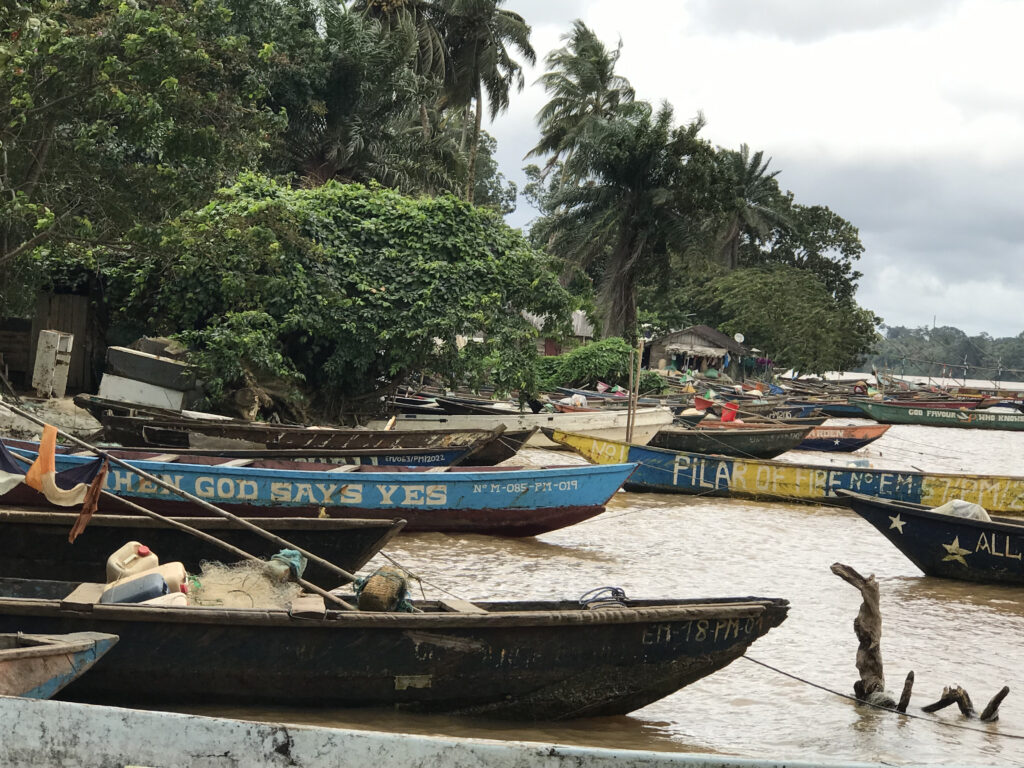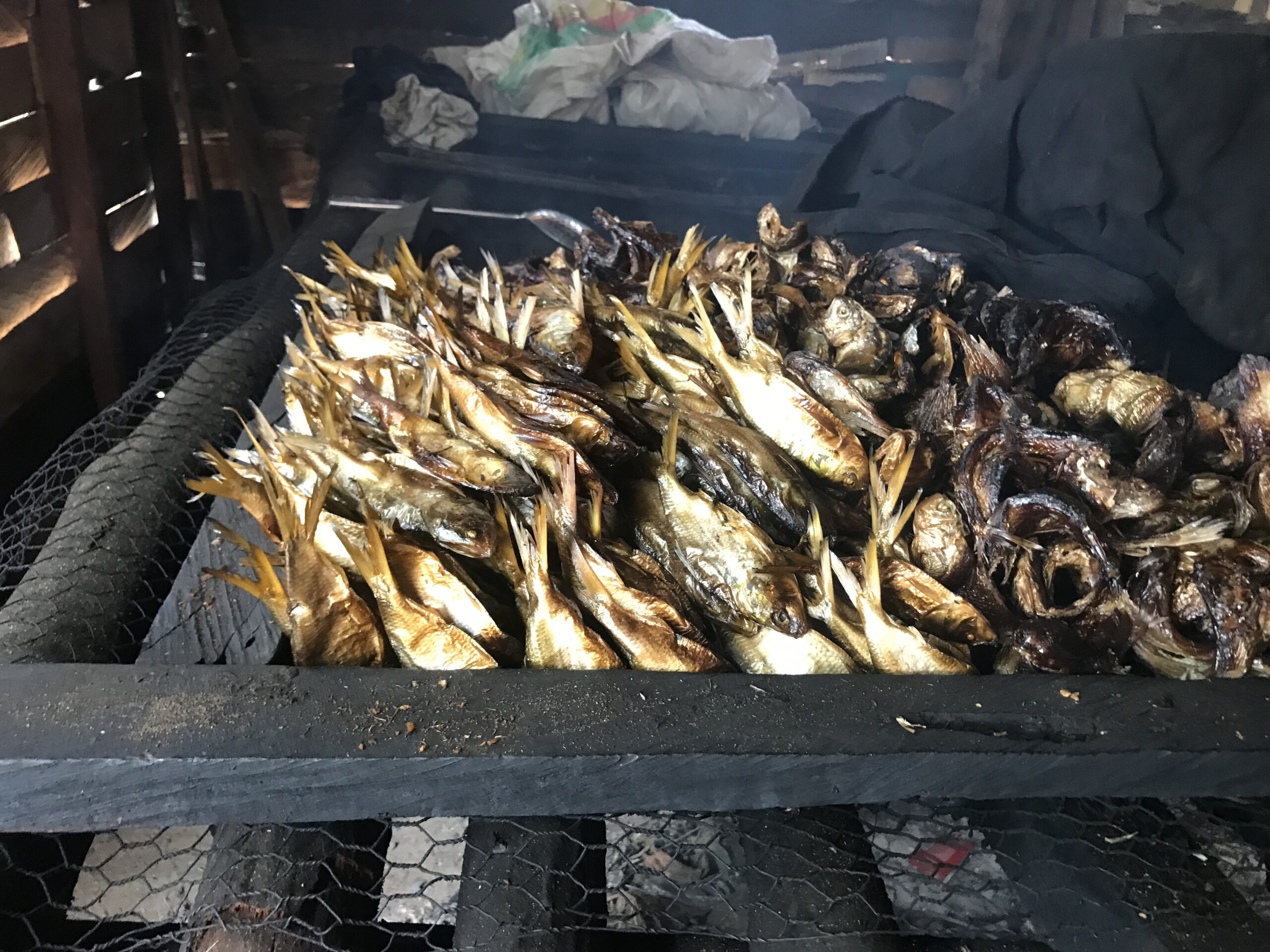By Leocadia Bongben
“I’m tired. I’ve stopped fishing. I don’t do anything to do with it anymore because it only brings me losses,” Ladi Ben, a fisherman in Yoyo, tells EJF how the destruction of his equipment led him to give up fishing.
Even though the law forbids trawlers from fishing within five nautical miles of the coast, a zone designated for small-scale fishing, Ladi Ben’s choice to give up fishing reflects the situation faced by fishermen along Cameroon’s coastline. One of the trawlers’ crew members told EJF, “There hasn’t been a time that the trawlers haven’t gone to the coast.”
The crews on board these ships reportedly reported difficult and violent working conditions, including a lack of a contract, inadequate food and water, and violence committed by foreign officials. “The smallest mistake: fight—and their fight is always… machete, knife,” one fisherman clarified. Another said, “I believe that only our leaders are capable of taking action. The only people who can change things are our leaders. We only need to have the will to accomplish it.
The effects of illicit fishing on Cameroon’s coastal communities, compliance issues, human rights issues, and the pressing need for increased openness in fisheries governance are all highlighted in a new film produced by the Environmental Justice Foundation, or EJF.
The repercussions are severe for artisanal fishermen. The fish is often referred to as our savior. Our kids go to school because of fish. We buy everything you see here because of fish,” said Mbiako fisherman Benson Okonniyin Abel. However, the trawlers continue today. Day, night… They can occasionally be found in groups of ten or twelve.
Cameroon has taken several measures since the European Union Commission banned its shipment of fish to the EU in 2023 after issuing it a “red card” for failing to stop illicit fishing. These include joining the Global Charter for Fisheries Transparency in April 2025 and passing a new law on fisheries and aquaculture in December 2024.
Dr Badaï Élie, Head of the Brigade for the Control and Surveillance of Fishing Activities in Cameroon, stressed the importance of protecting small-scale fishing, which accounts for more than 80% of national production: ‘When IUU fishing is reduced in Cameroon… the quantity of [local] seafood products will increase, and there will be fewer imported products.’

Steve Trent, the founder and CEO of EJF, said, “Illegal industrial fishing is causing Cameroonians to lose their food.” These illegal actions undermine jobs, workers, and the environment. The Cameroonian government has taken several constructive actions. But more needs to be done to ensure law enforcement and offenders are held accountable and that transparency is upheld. Until then, Cameroon will not be able to ensure sustainable, ethical, and legal fishing, Trent adds
The next crucial step for Cameroon is to implement its new fisheries law. This means adopting the implementing decree that will give it binding force, disseminating it widely among stakeholders, and implementing it effectively on the ground, both at sea and in coastal communities.
The law may remain a dead letter, and illegal trawlers will continue to devastate people’s livelihoods and marine ecosystems with impunity if the government does not promulgate an implementing decree, warns the Environmental Justice Foundation (EJF).

